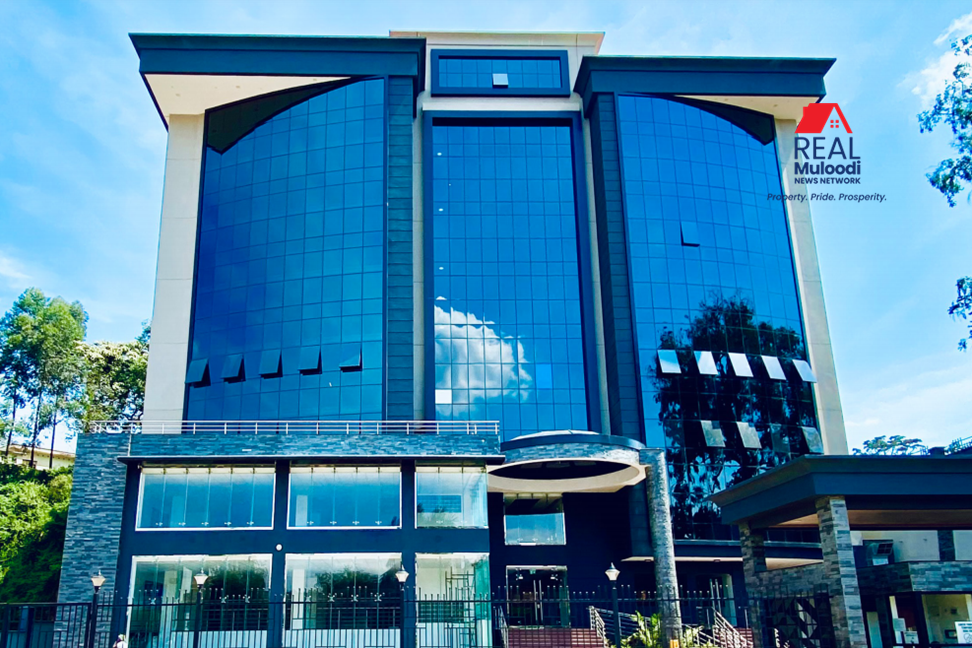UGANDA, Kampala | Real Muloodi News | Knight Frank has released their highly anticipated Kampala Market Performance Review H1 2021, covering the period January – June 2021. The report provides a detailed analysis and review of how the Office, Residential, Industrial and Retail property sectors performed during the period, against the country’s economic performance.
The report highlights a 3% decline in high-end office occupancy in Kampala in the first half of 2021. On the positive side, the report shows increased demand for showroom space and residential property.
Office Occupancy:
The decline in office occupancy occurred in both upper-grade A, and lower grade A/B office categories, which saw a decrease of 3% compared to the same period last year. The fall is primarily because of the effects of the pandemic, which led to space downsizing and relocation, and more employees working from home.
In the first half of this year, 6000 square meters of Grade A office space was added to the market. This increase of stock further affected occupancy rates.
An additional 130,000 square meters is expected to be added within the next 2-3 years, with Pension Towers, Twed Heights, IGG Building, Pearl Business Park projects in the development pipeline. Supply will be concentrated in areas of Nakasero, Kololo and Bugolobi.
Office rents remained relatively stable during the period. However, Grade A office rents registered a slight reduction of 3% compared to the same period last year. This is the result of rent reductions that were enforced in some buildings after the March 2020 lockdown.
Prime office yields averaged between 8% and 9% in the period under review.
Landlords continued to face requests for rent reductions from prospective and existing tenants. A few landlords made some considerations in a bid to prevent a further drop in occupancy. However, many did not considering they had already offered discounts to their tenants during and after the March 2020 lockdown.
Residential Property Market:
Knight Frank’s report showed an increase in activities in the residential property market, indicating a 6% increase in the supply of apartments, especially in Kololo, Bukoto, and Naguru.
The increased supply of apartments has compelled landlords to maintain discounted rental fees that were put in effect in 2020, so as to maintain occupancy rates. Furthermore, the market expects an additional 161 apartments in the next 18 months.
This period also showed an increased demand for home offices on residential property because of the lockdown.
With the signing of key oil agreements in April 2021, Knight Frank registered an uptick in development activity among property developers, with landlords hoping for increased take up and improved rental offers for prime, private rented accommodation.
In addition, the vaccination rollout has seen many expatriates returning to Uganda, which is also likely to increase demand.
Industrial Market
The report noted an increased demand for showrooms in the city centre from furniture traders, agricultural firms, automotive, and food and beverage businesses.
Additionally, the report attributes increased demand to companies looking for space closer to their clients, and those expanding/diversifying their business.
Retail Market
The review period saw subdued trade within the retail sector, as Uganda struggled to deal with the extended pandemic, stringent operating procedures, impacts on supply chains, and dwindling consumer spending.
Increased activity was recorded around neighbourhood convenience centres that are easily accessible to households and those that work from home. These developments are generally tenant mixed with essential daily requirements and services.
In contrast, regional malls were greatly impacted by the restrictions enforced, recording lower footfall traffic compared to pre-pandemic levels.
Outlook:
The recent signing of the oil agreement and rollout of the COVID-19 vaccine provides hope for improvement in general economic performance, albeit at a slower pace. As such, improvements in the residential and office sectors are expected.
However, downside risks surround economic growth, due to evolving COVID-19 variants and limited vaccine doses.
It is yet to be seen how the latest lockdown will influence rents and occupancies, although these are expected to be relatively subdued in the coming months.
READ MORE LIKE THIS:



